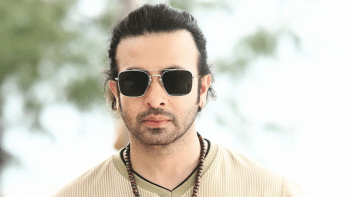Ruling Awami League today started selling nomination forms to aspirants for its 43 reserved seats for women in the 11th parliament.
The aspirants were seen thronged the AL president's Dhanmondi political office in Dhaka since morning to collect the nomination forms.
AL General Secretary Obaidul Quader formally inaugurated the selling of the nomination forms, reports UNB.
The party has fixed Tk 30,000 as the price for each nomination paper.
Yesterday, the Election Commission said that it is likely to announce the polls schedule on February 17 for 50 parliamentary seats exclusively reserved for women.
The reserved seats' distribution will reflect the seat share in the directly elected 300 constituencies. According to the proportional representation in the parliament, Awami League will get women MPs from 43 reserved seats, Jatiya Party from 4 seats, BNP from one, and others will fill out the last two.
Out of the 300 parliamentary constituencies across the country, Awami League won in 259 constituencies, while Jatiya Party in 20 seats, BNP in six seats, Workers' Party in three constituencies, Gano Forum, Jasod and Bikalpadhara each in two seats, Tarikat Federation and JP (Manju) each in one seat in the recently held 11th general election.
Besides, independent candidates were elected in three constituencies in the polls held on December 30 last.
One remaining constituency Gaibanda-3 will go to polls on January 27, after the election there was postponed earlier following the death of a candidate.
The Election Commission has a legal obligation to arrange the polls to the 50 reserved seats within 90 days after the gazette of general election result is published.
The directly-elected members of parliament are the voters of the election.
If the number of nominated candidates by a political party is equal to its reserved seats, the contenders will be declared elected unopposed immediate after the last date for withdrawal of candidacy.
Meanwhile, the Jatiya Party will start selling nomination paper from tomorrow for its four reserved seats, sources at the party told The Daily Star this afternoon.



 For all latest news, follow The Daily Star's Google News channel.
For all latest news, follow The Daily Star's Google News channel. 






